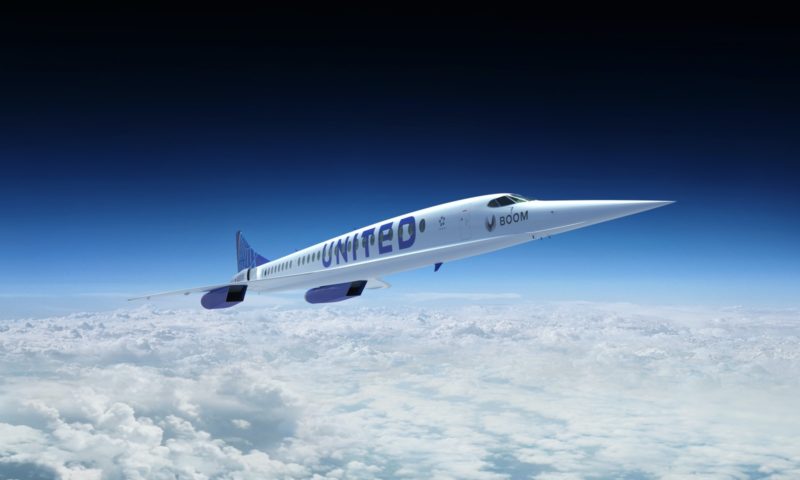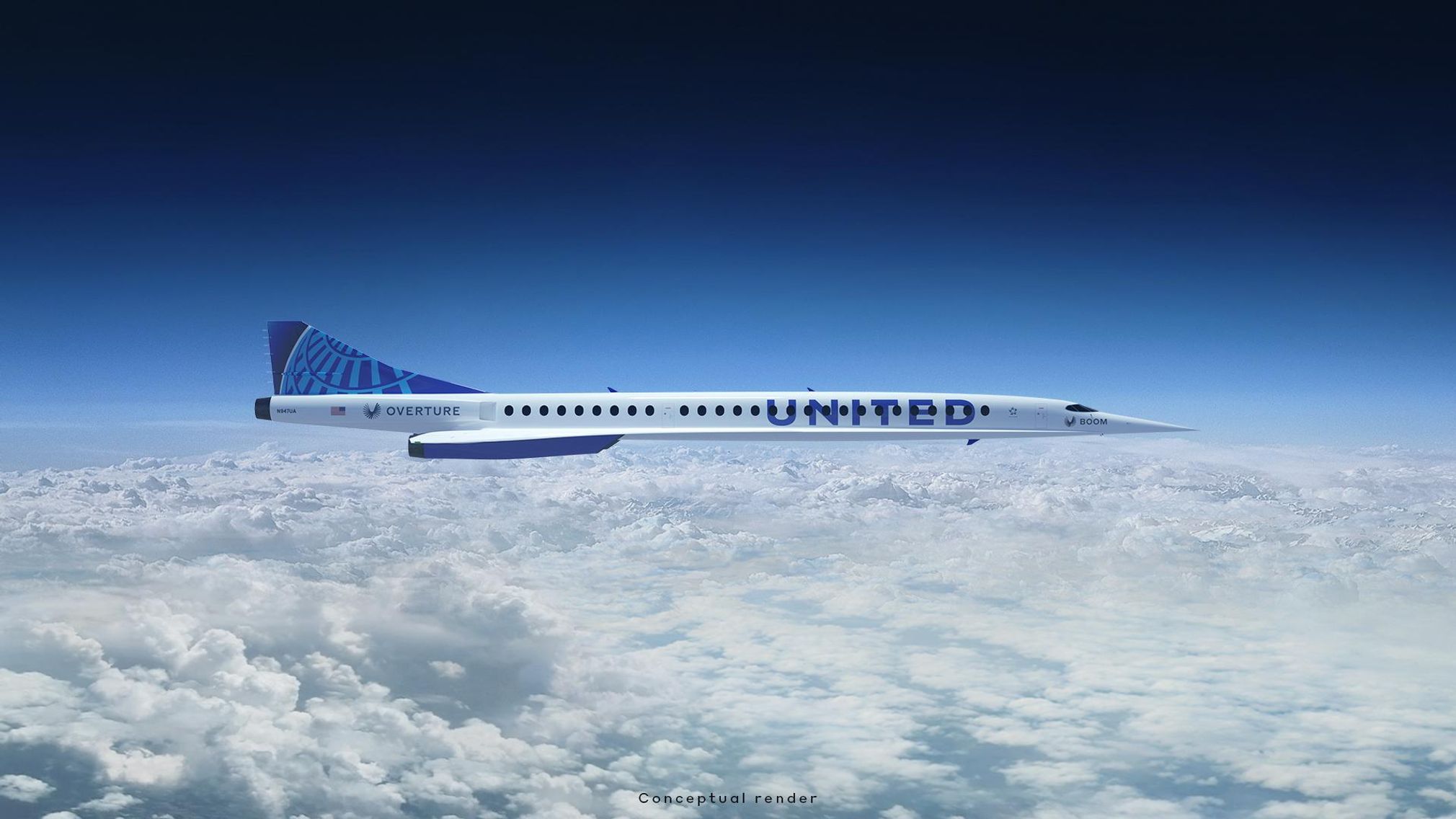United Airlines today announced a commercial agreement with Boom Supersonic to add supersonic aircraft to their global fleet. The carrier announced Thursday that they are buying 15 planes from Boom Supersonic, with the option to purchase 35 more.
Boom’s first commercial supersonic jet, the Overture, has not been built or certified yet. It is targeting the start of passenger service in 2029, with a plane that could fly at Mach 1.7 and cut some flight times in half. This means that a flight from New York to London, typically lasting seven hours, would only take around 3½ hours.
Once operational, Overture is expected to be the first large commercial aircraft to be net-zero carbon from day one; being optimized to run on 100% sustainable aviation fuel (SAF). It is slated to roll out in 2025, fly in 2026 and expected to carry passengers by 2029. United and Boom will also work together to accelerate production of greater supplies of SAF.
“Boom’s vision for the future of commercial aviation, combined with the industry’s most robust network in the world, will give business and leisure travellers access to a stellar flight experience.”
United CEO Scott Kirby
United vice president of corporate development, Mike Leskinen, said the Overture could dramatically alter some of the airline’s busiest international routes. “If we can cut the time to fly from the East Coast of the US to certain cities in Europe and do it with lower emissions, we think that’s very attractive” he said.

The Denver-based Boom Supersonic was founded in 2014, raising $270 million in capital, and has grown to 150 employees. For founder and CEO Blake Scholl, landing a firm order with a legacy airline validates his vision of bringing back supersonic flights.
“The world’s first purchase agreement for net-zero carbon supersonic aircraft marks a significant step toward our mission to create a more accessible world” Scholl said in a statement.
Boom plans to make its first flight later this year with a demonstrator jet called the XB-1. If it goes as planned, Boom will begin production of the Overture in 2023 and conduct its first flight in 2026. The ultimate hurdle will be winning certification by regulators, including the Federal Aviation Administration.
The supersonic Concorde flew commercial flights from 1976 until October 2003.


